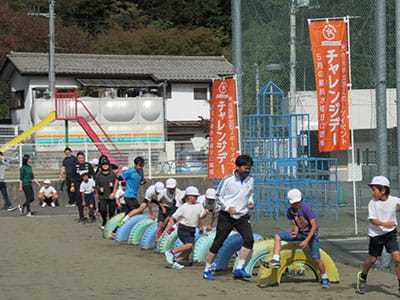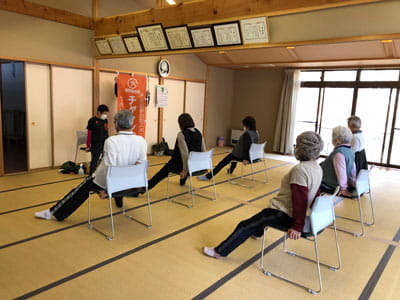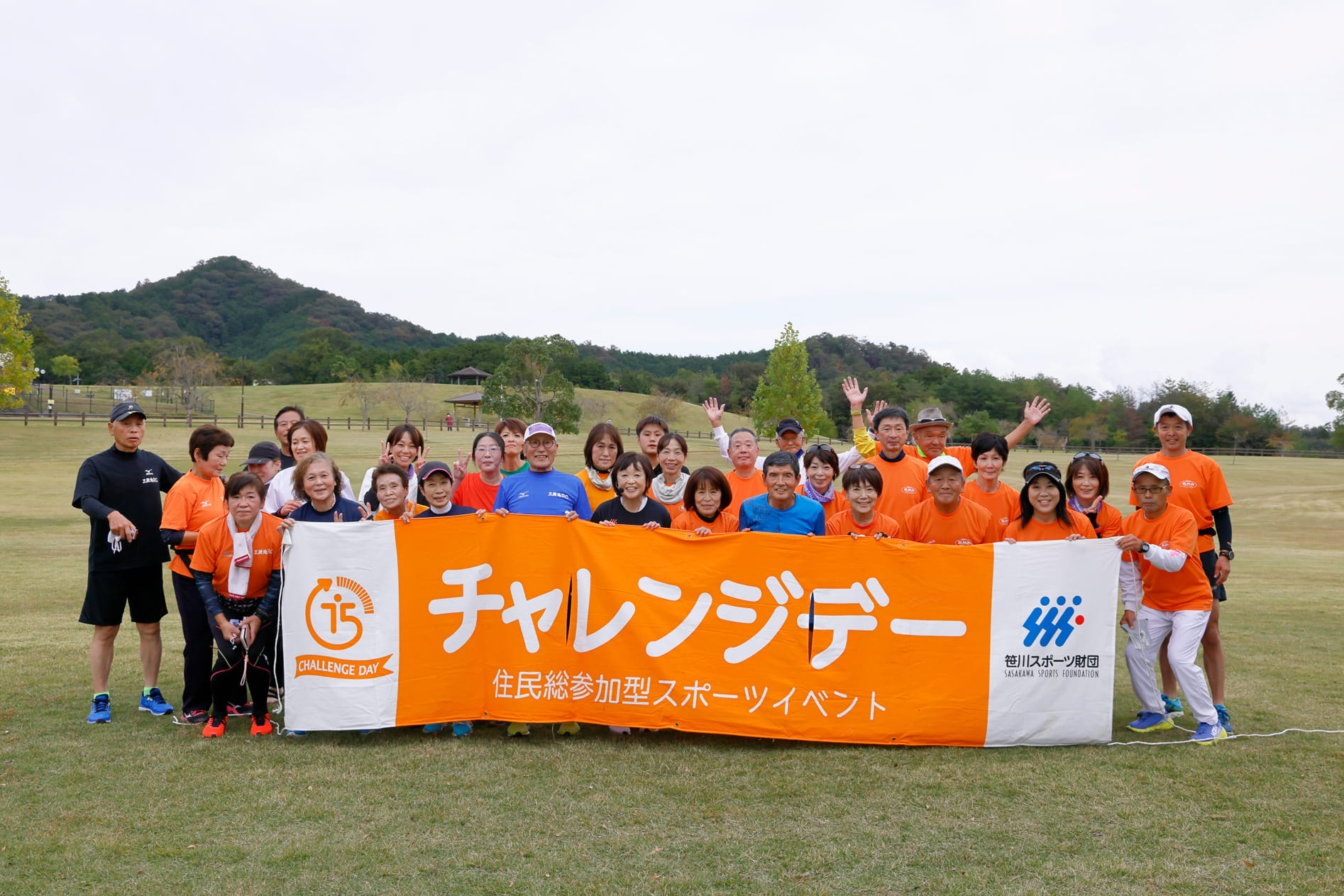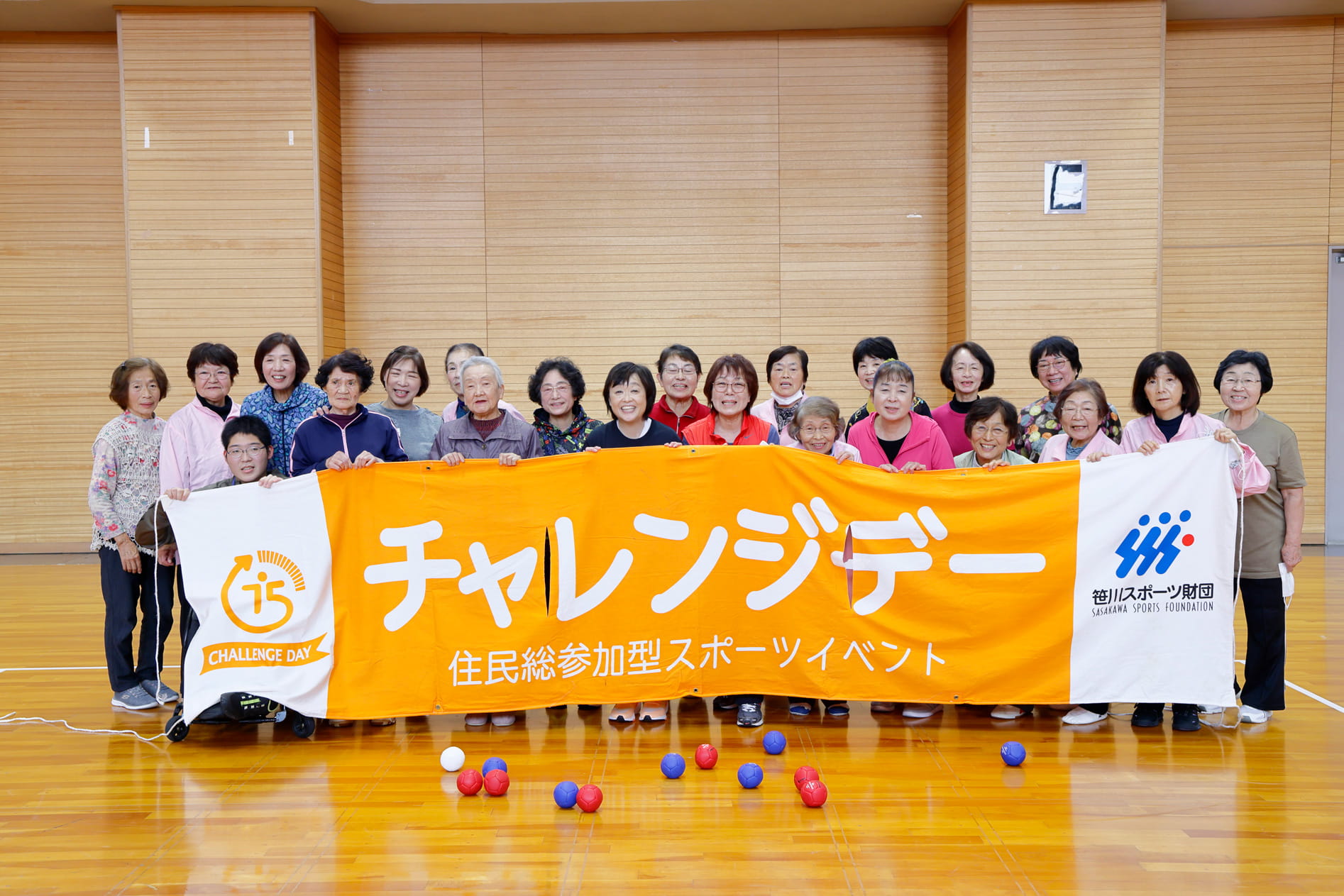Japan’s Largest Municipal Sports Event
“Sport for Everyone” means exactly that: a society where anyone can enjoy sports, regardless of age, gender, or disability. One way the Sasakawa Sports Foundation works toward this goal is partnering with Japanese and international organizations to get people across the country exercising on Challenge Day.
Challenge Day originated in Canada in 1983 with the aim of increasing community participation in sports. In the early 1990s, The Association For International Sports for All (TAFISA) took the program global as World Challenge Day. In 1993, the Sasakawa Sports Foundation became program coordinator for Japan, cohosting the country’s first Challenge Day event with the town of Kamo (now Unnan), Shimane. Since then, the foundation has sponsored the event 29 times, and Challenge Day has become the largest municipal sports event in Japan, with over 3 million participants from more than a hundred municipalities every year.
World Challenge Day is officially held on the last Wednesday in May, but in Japan Challenge Day 2021 was postponed until October 27 due to the COVID-19 State of Emergency declaration. A total of 672,531 participants in 66 municipalities took part, all observing strict precautions against infection. The total participation rate for Japan, defined as the number of participants relative to the total population of participating areas, was 26.6%. Many individual municipalities achieved much higher rates, however. The village of Ueno in Gunma won the Challenge Day Grand Prize for highest participation rate with a rate of 105.4%, representing 1,197 participants despite a population of just 1,136!
In Ueno, winner of the Challenge Day Grand Prize, the number of participants was higher than the village’s population.
What does Challenge Day look on the ground? The following report describes how participants spent the day in Fukuchiyama, Kyoto.
Spreading Smiles with the Power of Sports
Fukuchiyama is 75 minutes by express train from Japan’s old capital of Kyoto. A city of 77,038 (as of the end of 2020) nestled amid mountains, it combines urban conveniences with lush natural beauty. The city first participated in Challenge Day in 2019, but with 2020’s Challenge Day was held online, mainly focused on individual and family activities due to the COVID-19 pandemic, 2021 was only Fukuchiyama’s second real Challenge Day experience.
Events on Challenge Day begin at midnight and are held over the next 21 hours until 9 P.M. Each person who participates in exercise or sports for 15 minutes or more counts as a “participant” and adds to the participation rate. Some municipalities compete with others of similar population size to achieve the highest participation rate in the “Community Challenge” format, while others prefer “Open Participation” with no competitive aspect. Activities can be held anywhere, including homes, schools, workplaces, sports facilities, and public parks. In Fukuchiyama, exercise facilities across the city hosted sporting events: table tennis and boccia at gymnasiums, ground golf in the park, pitching contests and games at the baseball field, and more. A group walk along the course originally planned for the Tokyo 2020 Olympics Torch Relay also found many takers.
For residents who preferred to participate from the comfort of home, a local radio station broadcast “Fukuchiyama Ondo,” a traditional tune for dancing at the Bon-Odori festival, the city posted videos of an original exercise routine on its official YouTube channel, and a special program made recreational equipment for home events like “cup golf” (a new game invented in Fukuchiyama, where golf balls in paper cups are rolled over a score board) and ring toss readily available to local residents. Because Fukuchiyama will host the soft tennis event at the World Masters Games to be held in Kansai, the city also invited comedian and amateur soft tennis enthusiast Kenji Tamura for a soft tennis tournament.
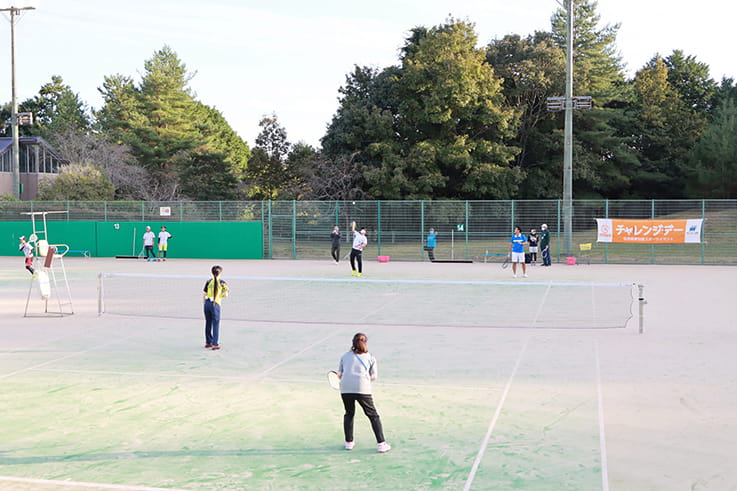
Soft tennis at Fukuchiyama. Soft tennis, played with an air-filled rubber ball, was invented in Japan. (Photo courtesy of Fukuchiyama City)
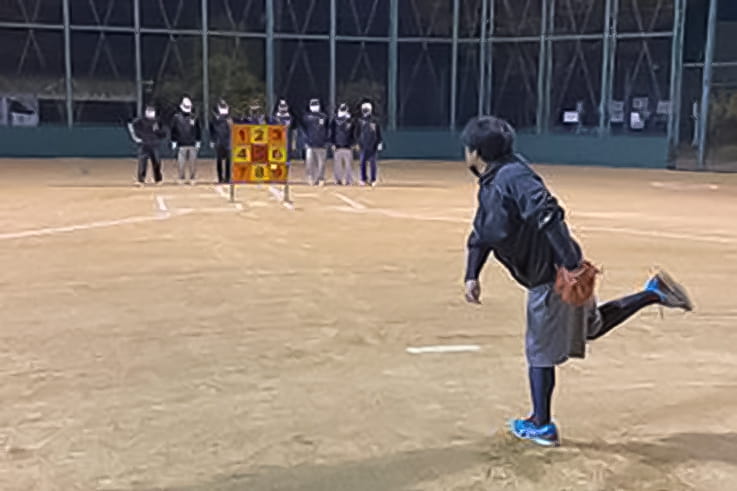
Fukuchiyama’s residents also played “Strikeout,” a pitching game where points are earned for accuracy. (Photo courtesy of Fukuchiyama City)
Another Challenge Day attendee in Fukuchiyama who caused a stir was SSF Director Akemi Masuda. Masuda represented Japan in the Women’s Marathon at the Los Angeles 1984 Olympics and, following her retirement in 1992, became a sports journalist whose skill at weaving in personal anecdotes about contestants and their personalities has made her a popular fixture in the marathon commentary world.
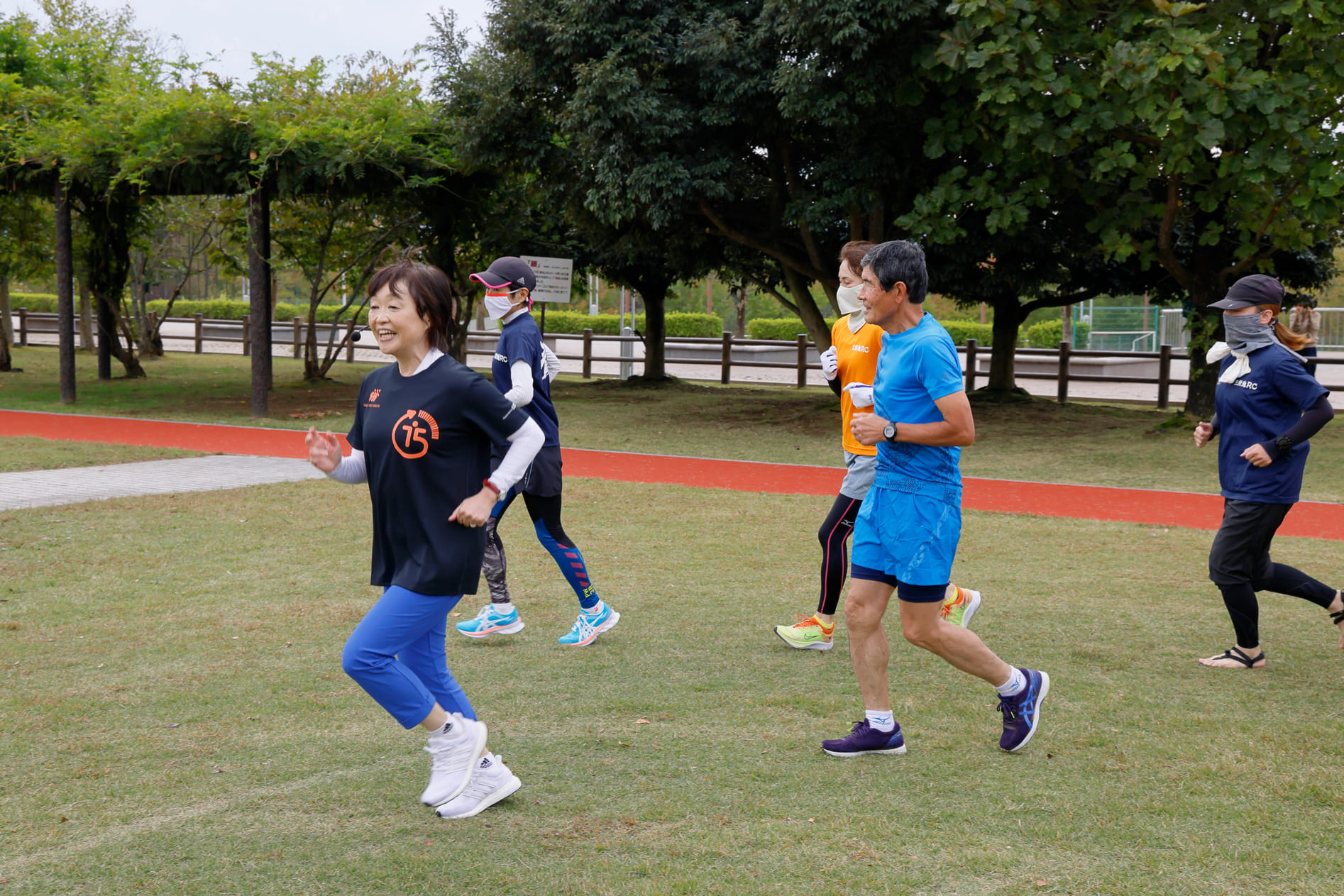
Masuda smiles as she continues speaking to participants.
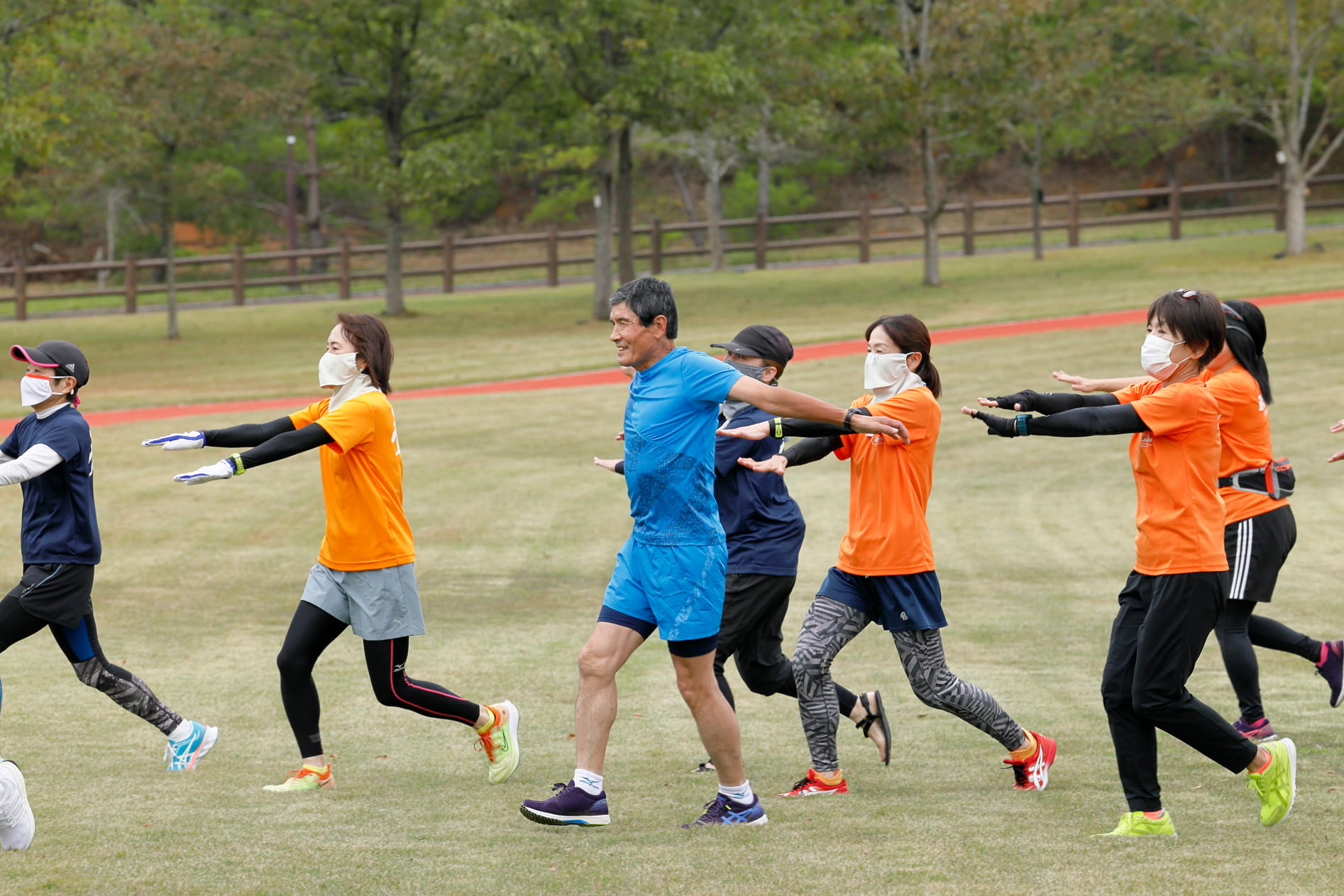
Participants interspersed running with anerobic workouts to try their hand at circuit training.
Members of the city’s two marathon clubs and other residents gathered in the park for her appearance with mayor Kazuo Ohashi. Wearing a Challenge Day T-shirt, Masuda did four laps of a roughly 550-meter course with the attendees, offering her unique commentary along the way via wireless mic. After this warm-up, she taught everyone the daily circuit training techniques used by track and field athletes, leading the group in making full use of the space to move around energetically.
“This was a fantastic event,” said participant Tsuneo Omachi with a grin. “It was incredibly moving to be able to run alongside Masuda-san after watching her on television. I realized once more how important it is to keep seeking new challenges your whole life through. My running club has members ranging in age from their 20s to their 80s, and it’s great when everyone can run together. I’m 72 now, so my stamina isn’t what it once was and I can’t run as far as I used to, but today was a reminder that simply putting in the effort is important. Next year I hope to reach out to even more people and get as many as I can to participate.”
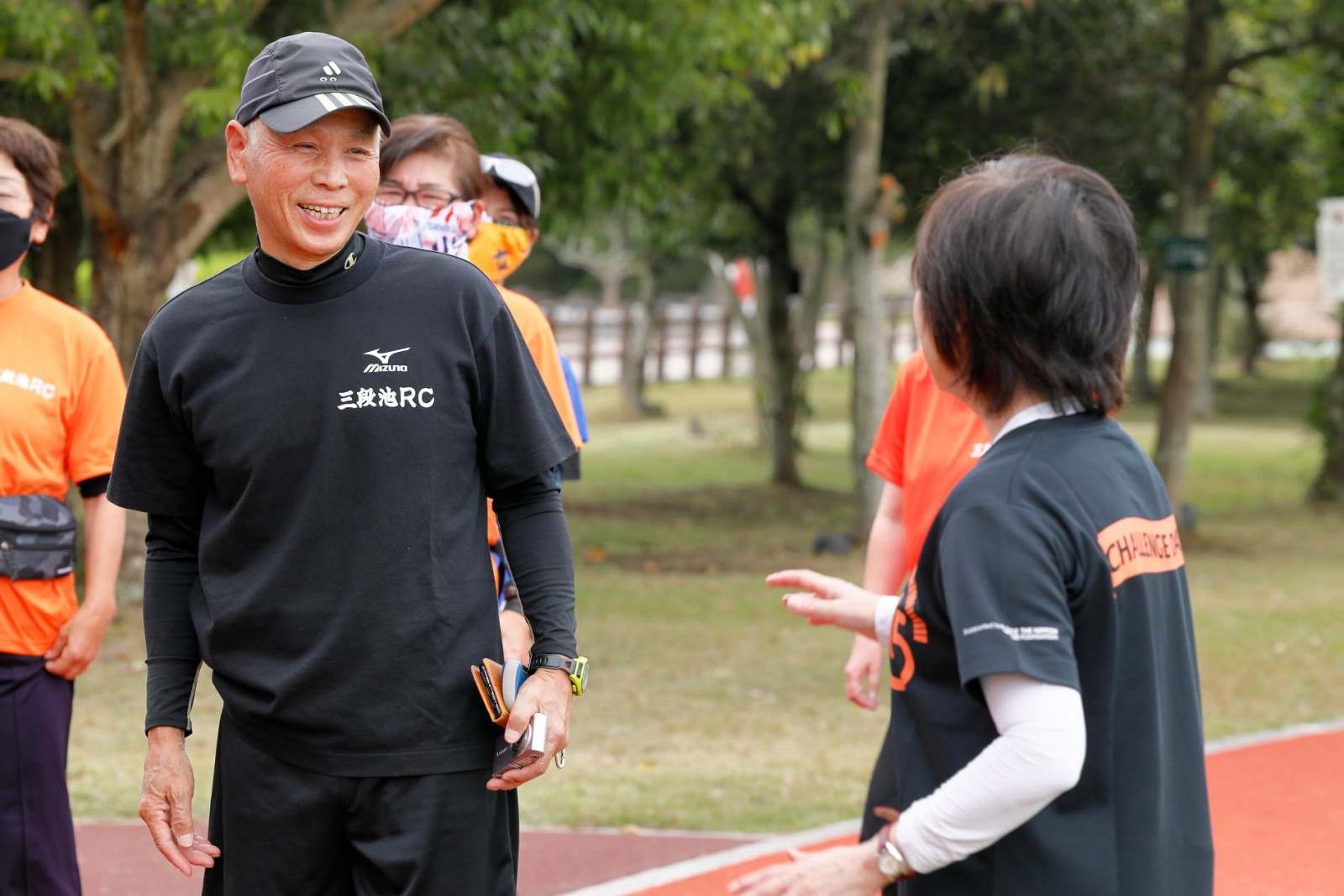
Omachi, shown here speaking with Masuda, is the leader of a local running club.
After the group run, Masuda tried her hand at para-sports such as boccia and seated javelin throw. “It was fun,” she said. “If Challenge Day is the spark that gets more people in the habit of exercising and leading richer lives, I can’t think of a better outcome. The woman playing boccia next to me told me that boccia was what got her out of her house, because playing it was so much fun. That kind of spark is what matters. Competing with other cities of the same size is also motivating.”
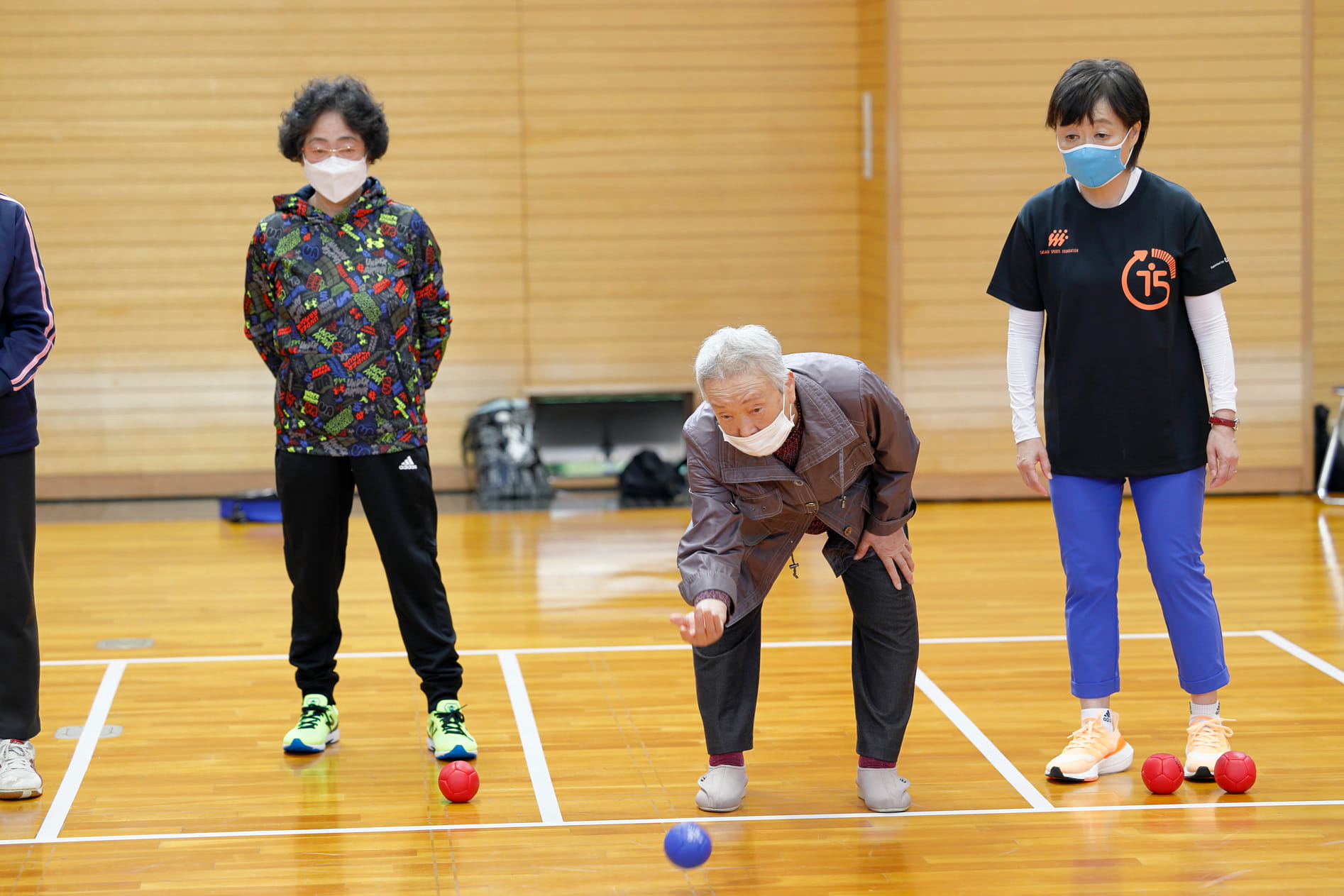
The woman playing boccia next to Masuda.
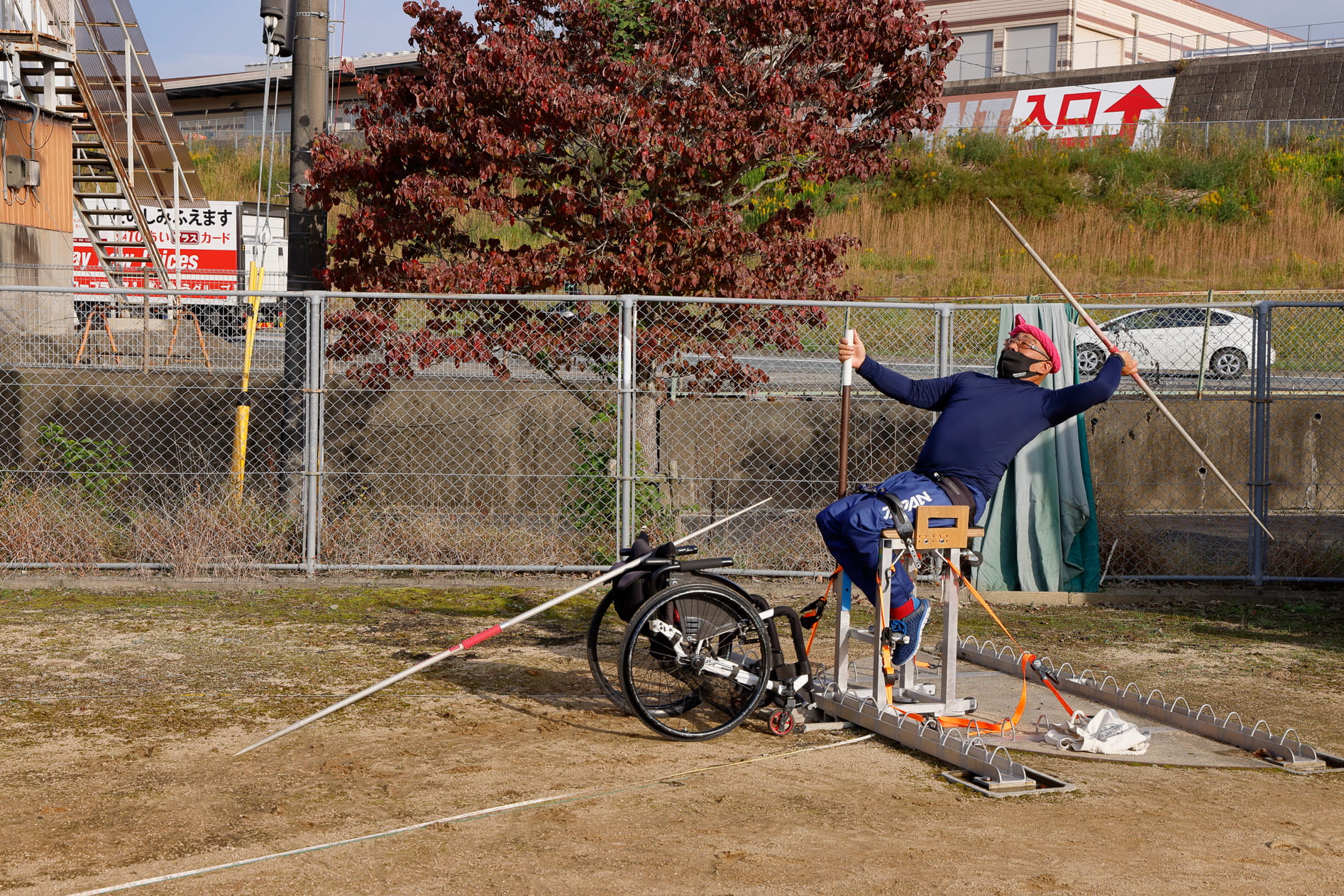
Koji Otsuki, the Japanese record holder for seated javelin throw, also participated in Challenge Day. He served as a torchbearer for the Tokyo 2020 Olympic Games Opening Ceremony.
Local Sports Groups Pitch In
“In Japan, when you leave school and start to work, your opportunities to exercise decrease,” says Natsuki Hayashi, who works in cultural and sports promotion for the city of Fukuchiyama. “The same thing happened to me. As a spark for getting people into the habit of exercising, Challenge Day is very meaningful.”
The State of Emergency due to the COVID-19 pandemic was lifted on September 30, meaning that there was less than a month to prepare for the event. According to Hayashi, everything from calibrating anti-infection measures to getting the word out to participants was a challenge.
“We wanted as many people as possible to participate, so we asked local public and private sports groups to help,” says Hayashi. “They’re all lovers of sports, so they offered their own suggestions for events, which was very welcome. The connections we made preparing for Challenge Day will be very valuable for future sports promotion activities, too.”
Multiple local sports groups participated in Challenge Day 2021 in Fukuchiyama.
Hayashi looks forward to building on the success of Challenge Day to create more sports-lovers among the city’s residents. “Even here in Fukuchiyama, there are many people who don’t know about Challenge Day. I plan to keep striving to make it an occasion for getting into the habit of participating and enjoying sports for as many people as possible. Finding the right venue often feels like the main barrier to participating in sports, so raising awareness of how easy it is to use Fukuchiyama’s sporting facilities was a major Challenge Day success.”
Fukuchiyama’s official rival cities for Challenge Day were Seki and Yonezawa, in Gifu and Yamagata prefectures respectively. Fukuchiyama won the three-way battle with a participation rate of 48.8% representing 37,565 participants. “I received messages from participants saying ‘Congratulations on your first victory’ and ‘I participated, too,’” says a smiling Hayashi. “It gave me a wonderful sense that Fukuchiyama had come together as one.”

